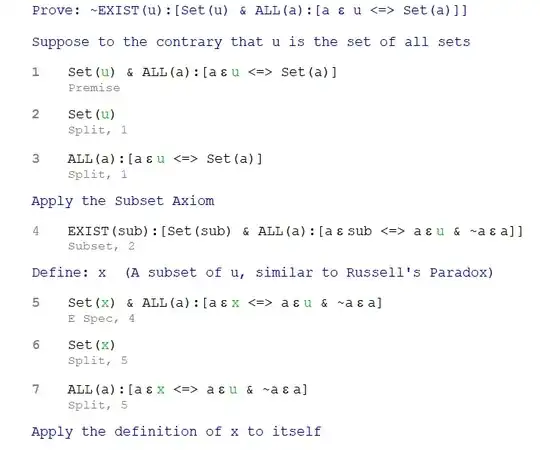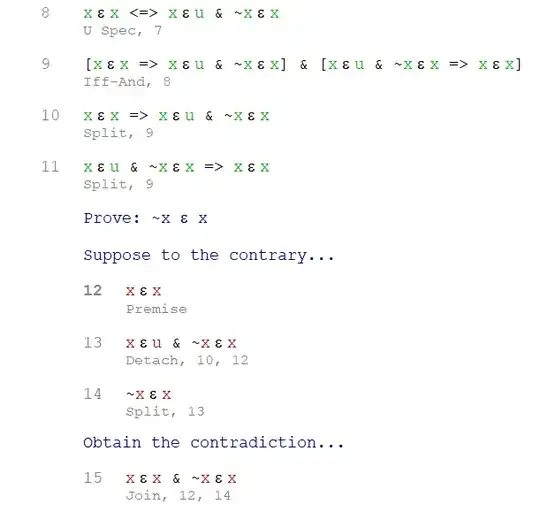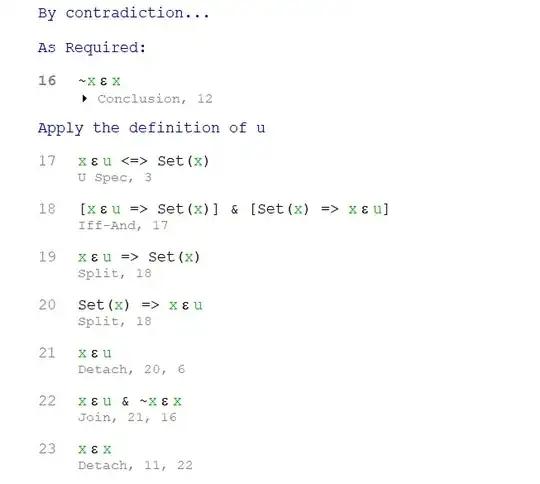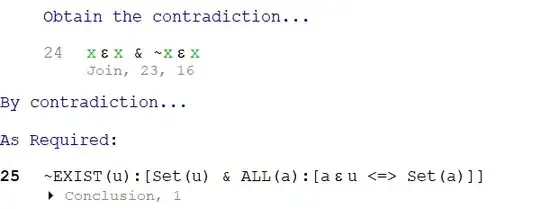In my first math class at a university a professor introduced us into set axioms in an informal way. Specifically he listed the following axioms:
1) There is a set.
2) Two sets are equal iff they contain equal elements.
3) if $A$ is a set and $p(x)$ is a set property (e.g. $x = x$), then $\{a \in A : p(a)\}$ is also a set.
4) if $A$ and $B$ are sets, then there is a set which contains only elements of $A$ and $B$.
5) if $\mathbb A$ a set, then $\{a | \exists A \in \mathbb A : a \in A\}$ is also a set.
6) For each set there is its power set.
The professor claimed that from those axioms alone the following follows: there is not set of all sets.
I am wondering why.
As I said, the introduction in the set theory was rather informal, so I would also need an informal answer (a formal one I probably would not be ably to comprehend).
My attempt
Assume there exists a set of all sets $A$, then $B = \{a \in A : a \notin a\}$ according to 5 is a set. Then neither $B \in B$ nor $B \notin B$ is true which is nonsense, so $A$ does not exist. I am using here the idea of Russell's paradox but I am not sure whether this qualifies as a proof.



